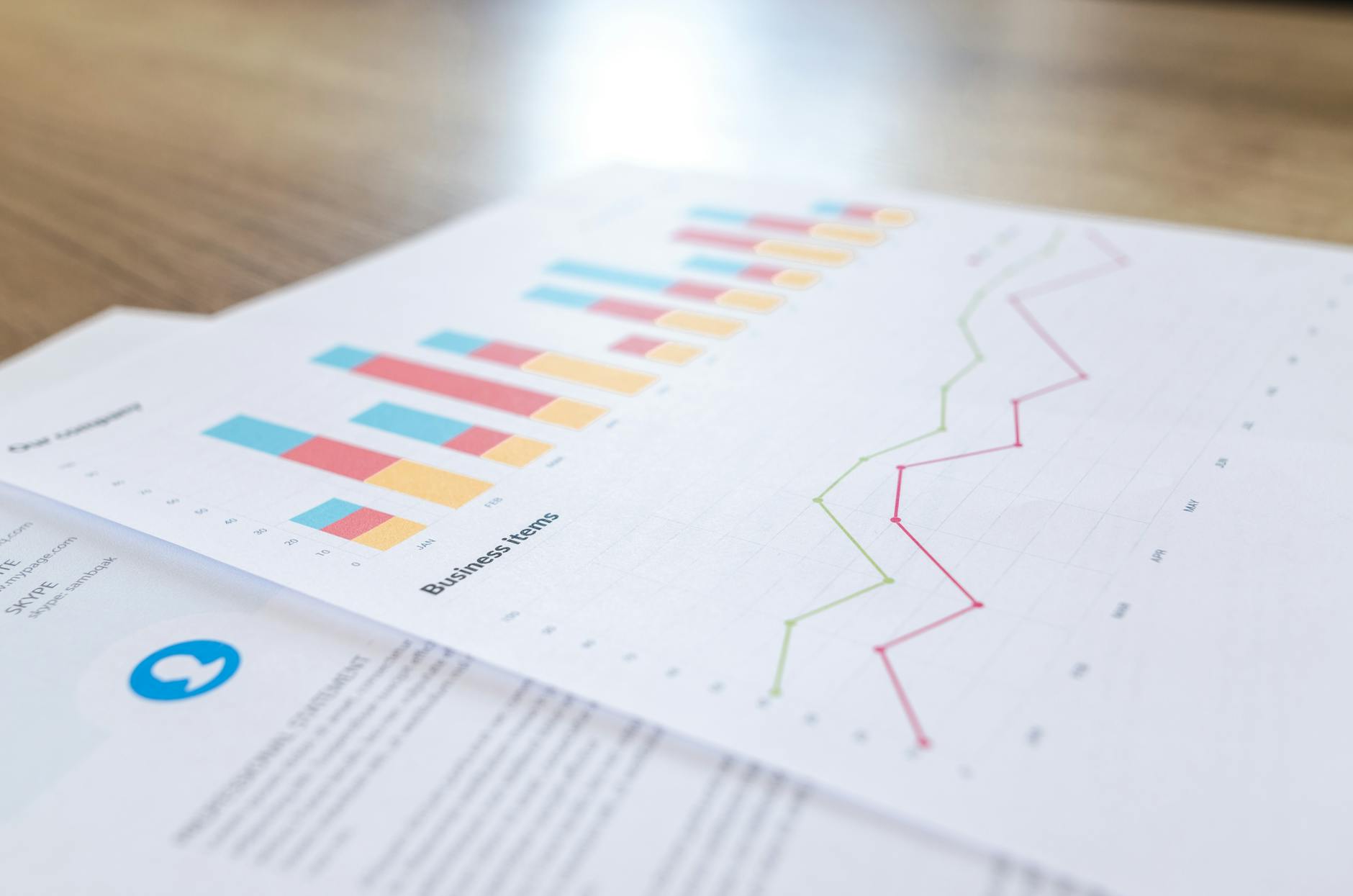How Monitoring Your Credit Report Can Prevent Collection Issues
Credit monitoring is more than just a trend; it’s a smart move for anyone concerned about their financial wellbeing. Regularly checking your credit report helps you spot issues before they escalate into serious problems.
Collection issues can sneak up on you, often due to errors you didn’t even realize were on your report. The good news is that staying informed can empower you to act quickly and avoid unwanted surprises.
In this post, we’ll explore how consistent monitoring can help you maintain a healthy credit profile and safeguard against collection surprises. By understanding what to look for and how to respond, you’ll be better equipped to protect your financial future.
The Basics of a Credit Report
Understanding your credit report is essential for maintaining a healthy financial life. It not only impacts your ability to secure loans but also affects your everyday financial transactions. Let’s break down the key components that make up a credit report and how they influence lenders.
What is Included in a Credit Report?
A credit report contains several crucial pieces of information that outline your borrowing history and financial behavior:
- Personal Information: This section includes your personal details like your name, address, Social Security number, and date of birth. It’s essential that this information is accurate since it identifies you uniquely.
- Credit Accounts: Here, you’ll find details about your open and closed credit accounts, such as credit cards, mortgages, and auto loans. This includes the date you opened each account, credit limit, and current balance.
- Payment History: Lenders want to see how well you’ve managed payments over time. This section indicates whether you’ve paid your bills on time or if there are any late payments.
- Credit Inquiries: Whenever you apply for credit, a lender will perform a credit inquiry. This section shows both hard inquiries (which can affect your credit score) and soft inquiries (which do not). It’s a way for lenders to gauge your creditworthiness based on your recent credit-seeking behavior.
- Public Records: If you’ve ever faced bankruptcy or had a tax lien, this information appears in your credit report. These records can negatively affect your credit score and make lenders think twice.
For more details, check out What’s In Your Credit Report?.
How Credit Reports are Used by Lenders
Lenders utilize credit reports to assess the risk of extending credit or loans. Here’s how they put it to use:
- Evaluating Creditworthiness: Lenders look at your credit report to determine how likely you are to repay debts. A solid history of on-time payments can work in your favor, while frequent late payments can be a red flag.
- Setting Interest Rates: Your credit score, which is derived from your credit report, influences the interest rates offered. The better your credit score, the more favorable rates you may receive.
- Loan Approval Decisions: In many cases, lenders use the information from your credit report to make decisions on whether to approve your loan. A lower score can lead to denial, while a higher score shows reliability.
Lenders understand what to look for in your credit report before making decisions about your application. To learn more about how lenders use credit reports, visit How Lenders View Your Credit.

Photo by Jakub Zerdzicki
The Risks of Ignoring Your Credit Report
Failing to monitor your credit report can open the door to several financial pitfalls. Understanding these risks is crucial for protecting your financial health. By keeping up with your credit report, you can address issues before they spiral into larger problems.
Inaccurate Information and Its Impact
Errors on your credit report can severely impact your financial opportunities. Did you know that one in five people have inaccuracies in their credit reports? These mistakes can lead to a significant drop in your credit score, making it tougher to secure loans or credit. A lowered score can result in:
- Denied applications: Lenders might see you as a higher risk. Imagine being turned down for a mortgage or a car loan due to a minor error.
- Higher interest rates: A poor score can result in lenders charging more. Over time, this extra cost can add up, making loans more expensive than necessary.
- Increased insurance premiums: Yes, insurance companies check your credit too. Your rates could be higher simply because of misinformation.
It’s critical to regularly check for any inaccuracies. This way, you can correct errors quickly. For more insights on the dangers of neglecting your credit report, read Not checking your credit report comes with risks.
Identity Theft and Fraudulent Accounts
Ignoring your credit report significantly increases the risk of identity theft. When you don’t monitor your credit, you might miss warning signs of fraud, like unexpected accounts in your name. The consequences can be severe:
- Financial Losses: Depending on the extent of the theft, you could accrue significant debts without your knowledge. This can complicate your affairs immensely.
- Damage to Credit Score: Fraudulent accounts can drag your credit score down. This might not only limit your borrowing ability but also haunt your finances for years.
- Stress and Hassle: Untangling fraudulent activity can be exhausting. Dealing with creditors and reporting fraud takes time and emotional energy.
Being proactive can save you from these issues. Consider using identity theft protection services to help monitor and safeguard your information. You can find helpful options at Equifax ID Patrol.

Photo by Artem Podrez
By understanding the risks, you put yourself in a better position to act before problems arise.
Benefits of Regularly Monitoring Your Credit Report
Regularly checking your credit report offers various benefits that can help secure your financial health. It’s not just about keeping track; it’s a crucial practice that ensures you’re informed and ready to act when necessary. Let’s explore some key advantages:
Early Detection of Errors
Identifying inaccuracies on your credit report promptly can save you from headaches later. Minor errors, whether due to clerical mistakes or incorrect account information, can drag your credit score down and limit borrowing potential. By monitoring your report regularly, you can:
- Spot Mistakes Early: You might find discrepancies like wrong balances or unauthorized accounts. Addressing these swiftly can mitigate financial stress.
- Act Before It Escalates: Did you know that many people don’t even look at their report until a situation arises? Regular checks allow you to stay ahead instead of scrambling during a crisis.
- Understand the Corrections Process: Once you spot an error, you can take action immediately—potentially improving your credit score in the long run. For a solid starting point, you can read about the importance of checking your credit reports.
Maintaining a Healthy Credit Score
Your credit score can shift based on various factors pulling from your report. Regular monitoring enables you to stay on top of these changes, providing insights into what’s impacting your score negatively or positively. Here’s how:
- Track Payment History: Your payment history significantly contributes to your score. Monitoring ensures you know if anything is amiss, such as forgotten payments or accounts sent to collections.
- Watch Credit Utilization: Keeping an eye on how much credit you’re using can highlight if you’re nearing your limits. High utilization can indicate to lenders that you may be struggling financially.
- Plan for Future Actions: Knowing your score allows you to strategize whether it’s time to apply for new credit or hold off until issues are resolved. For more on this, see Why You Should Regularly Check Your Credit Report.
Informed Financial Decisions
Awareness of your financial position gives you the power to make better choices. Having insight into your credit report can positively affect your financial strategy going forward:
- Smart Loan Choices: When you know your score, you can gauge which lenders may be accessible to you. This knowledge helps avoid wasted time applying for loans that may get denied due to low credit.
- Insurance and Housing: Your credit can influence rate decisions for insurance policies or housing applications. Being informed helps better prepare for negotiations or decisions on these critical aspects.
- Adjust Spending Habits: Monitoring can reveal patterns in your spending and borrowing behaviors, enabling you to align your expenditures in a way that nurtures a healthier score. You may want to explore more about the benefits of credit monitoring.

Photo by Lukas
How to Monitor Your Credit Report Effectively
Monitoring your credit report is essential for catching errors and noticing any suspicious activities. This proactive approach protects your financial identity and helps maintain a healthy credit score. Here are two effective methods to ensure you’re on top of your credit game.
Using Free Credit Report Services
There are reliable platforms where you can access your credit report for free. These services allow you to stay informed about any changes to your credit history, making it easier to catch discrepancies or errors. Some trusted sources include:
- Annual Credit Report: This site provides free access to your credit reports from all three major agencies—Equifax, Experian, and TransUnion—once a year by law.
- Equifax: Besides the annual report, registering with a myEquifax account provides additional free Equifax credit reports.
- FTC Guide to Free Credit Reports: A comprehensive guide from the FTC detailing your rights to free credit reports and how to obtain them.
- Consumer Financial Protection Bureau: Offers straightforward information on acquiring your credit reports without any charges.
- USA.gov: Provides an overview of how you can obtain a copy of your credit report to keep track of your credit health.
Setting Up Alerts for Changes
Setting alerts on your credit report serves as an excellent safeguard against potential problems. When you take advantage of credit alerts, you can get notified about significant changes that could impact your score. Here’s how it works:
- Fraud Alerts: Placing a fraud alert on your report informs creditors to verify your identity before extending credit. This can be invaluable if you’ve been a victim of identity theft. Check Equifax’s Fraud Alerts for details on how to set one up.
- Credit Monitoring Services: Many credit reporting agencies, like TransUnion and Experian, offer services to alert you whenever there are changes to your report. These changes might include new accounts opened or late payments reported.
- Life Events Alerts: Services may also allow you to set up alerts based on specific life changes, such as moving or changing jobs. Immediate notifications can aid you in maintaining accurate information.
By utilizing these effective strategies, you can maintain control over your credit report and quickly address any irregularities that may arise, ensuring your financial future remains secure.

Photo by Terrance Barksdale
The Role of Credit Monitoring Services
Credit monitoring services have become increasingly important for maintaining financial wellness. These services help you keep an eye on your credit report—and that can make a difference. By providing alerts for any changes or issues, they become your first line of defense against fraud and inaccuracies. Now, let’s explore the pros and cons of both free and paid options as well as what to look for when choosing a credit monitoring service.
Comparing Free vs. Paid Services
When it comes to credit monitoring, you have the choice of free or paid services. Understanding the differences can help you determine what suits your needs best. Here’s a breakdown of the pros and cons of both options:
Free Services:
- Cost-Effective: Naturally, the major advantage is that they are free. You don’t have to shell out money each month.
- Basic Monitoring: Free credit monitoring typically provides alerts for major changes, such as new accounts or missed payments.
- Annual Reports: You can access your credit report for free once a year through sites like Annual Credit Report.
Cons of Free Services:
- Limited Features: Many free services may not offer identity theft protection or detailed credit tracking.
- Fewer Alerts: You may miss out on alerts for less significant changes, reducing the overall effectiveness.
Paid Services:
- Comprehensive Coverage: Paid services often include features like identity theft protection, financial health monitoring, and three-bureau credit tracking. For example, options like Experian IdentityWorks offer added layers of security.
- Faster Alerts: These services generally provide quicker notifications about changes, helping you react promptly to suspicious activities.
- Additional Tools: Many paid services bundle their offerings with budgeting tools or direct support for managing your identity theft recovery.
Cons of Paid Services:
- Ongoing Costs: Prices for these services can range from $8.99 to over $39.95 a month, which can add up over time. More details can be found here.
- Possibly Unnecessary for Some: If your credit is in good shape, you may not need all the bells and whistles that come with a paid service.
Almost everyone benefits from credit monitoring, regardless of the option they choose. Depending on your needs, both services can help keep you alert and informed. Check out a detailed comparison at NerdWallet.
What to Look for in a Credit Monitoring Service
Choosing the right credit monitoring service can seem overwhelming. Here’s a guide to help you select the most suited option for your needs:
- Reputation: Start by looking for reviews and ratings of the services. Trusted recommendations can save you from potential scams. You can compare the best on Aura.
- Features Offered: Make a list of what features you find essential. Do you want identity theft protection, fraud alerts, or help with credit repair? The more features a service has, the more value it provides.
- Alerts: Check the effectiveness of their alert systems. Fast notification of critical changes can help you respond quicker, especially in cases of identity theft or credit errors.
- Education Resources: Good services often offer learning materials that help you understand credit scores and reports. Resources can empower you to make informed decisions.
- Ease of Use: Review the platform’s user-friendliness. A complicated interface can make it tough to stay on top of your credit.
- Customer Support: Opt for services with robust customer support options. Whether it’s online chat, phone support, or email, quick assistance can make a significant difference when issues arise.
By making informed choices, you can select a service that not only fits your budget but also aligns with your personal financial goals. More insights on features can be found in a comprehensive guide at Bankrate.

Photo by Ivan Samkov
Legal Rights and Protections Regarding Credit Reports
Understanding your legal rights is essential for managing your credit report effectively. Various laws protect you as a consumer, and knowing these can empower you to take action against inaccuracies or unfair practices.
Understanding the Fair Credit Reporting Act (FCRA)
The Fair Credit Reporting Act (FCRA) is crucial for safeguarding consumer information. It ensures that credit reporting agencies maintain accuracy in the data they collect and share. Here are some key provisions of the FCRA that protect consumers like you:
- Right to Access Your Credit Report: You have the right to obtain a free copy of your credit report from each of the three credit bureaus—Equifax, Experian, and TransUnion—once a year. This enables you to check for errors and understand your credit standing.
- Accuracy and Privacy: The FCRA mandates that your credit report must be accurate and updated. If mistakes occur, you have the right to dispute these inaccuracies.
- Notification of Negative Information: If negative information is added to your report, you have the right to be notified. This keeps you informed about what may impact your credit score.
- Limitations on Reporting Time: Negative information, such as late payments or bankruptcies, cannot stay on your report indefinitely. Generally, most negative events fade after seven years.
These provisions help ensure that consumers are treated fairly in financial transactions. For further details about your rights under the FCRA, check out Understanding the Fair Credit Reporting Act.

Photo by SHVETS production
Disputing Errors in Your Credit Report
Inaccuracies in your credit report can seriously hinder your financial prospects. It’s crucial to know how to dispute errors when you find them. Here’s a straightforward guide to the process:
- Gather Documentation: Start by collecting all relevant materials, such as your credit report copy showing the mistake. Be prepared to explain why you think the data is incorrect.
- Identify Errors: Review your report closely. Are there accounts that aren’t yours? Have payments been misreported? Clearly mark these inaccuracies.
- Send a Dispute: Contact the appropriate credit bureau(s) to dispute the errors. You can use online forms or send a letter explaining the inaccuracies along with your documentation. For guidance, visit How do I dispute an error on my credit report?.
- Follow Up: Once your dispute is submitted, the bureau typically has about 30 days to investigate. They’ll inform you of the result. Keep copies of everything you send for your records.
- Request Changes: If your dispute is successful, ensure that the correction is made to your credit report. If not, you can add a statement explaining the error, which can be included in future reports.
Understanding how to effectively dispute inaccuracies can save you from future financial woes. For more details on disputing errors, read Disputing Errors on Your Credit Reports.
Staying on top of your credit report is vital. It protects your rights and enables you to maintain a healthy financial future.
Conclusion
Keeping a close eye on your credit report is essential for avoiding collection issues and protecting your financial health. Regular monitoring allows you to identify errors and anomalies early, which can prevent them from snowballing into larger problems.
By staying informed, you empower yourself to take action before negative consequences arise.
If you haven’t already, start checking your credit report today. Make it a habit to review it regularly, and consider using reliable monitoring services to support your efforts. How often do you check your credit? This simple practice can save you time, stress, and money in the long run.